Plastered all over the media right now is the R. Kelly docu-series featuring the stories of victims coming forward to talk about the sexual, emotional, and physical abuse perpetrated by R. Kelly. But why is this a big deal now? We experienced the same allegations in the early 2000’s when he went to trial for child pornography charges for the famous sex tape of him with an underage girl, “allegedly.” Could it be that we did not really care about what
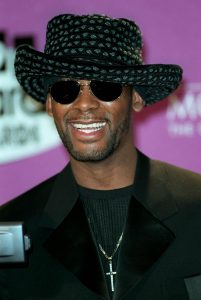
happened until the generation that went through it grew up and had kids of our own? This is the case for me. I did not put any of the allegations into perspective until I had a daughter of my own. When the trial was happening, I did not think twice about it, and now that this is all resurfacing while I have a daughter, it enrages me. A lot of people are questioning why care now? Why is this a big deal now and not before?
It is easier to sit back and judge the situation when you do not have to think about experiencing it. These young girls thought they were doing this because they had to, because they were impressionable. They saw this celebrity that they admired and thought “if I don’t do this, he won’t like me.” R. Kelly took advantage of them. He abused his celebrity power to extort these girls.
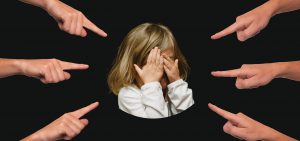
Are We The Issue?
Unfortunately these acts of manipulation don’t end with R. Kelly, instead we see politicians, religious figures, people of power and great influences able to continuously escape persecution, and suspicion in our society. Clinical Psychologist Dr. Jody Adewale states “Our society tends to compartmentalize the things we don’t want to look at it, and magnifies and glorifies the things that we do. For example, if an individual is providing something to the society such as music, cinema, and politics, then we are more likely to compartmentalize the negative behavior and minimize it as a way of accepting what they are contributing.”
People have blamed the victims, calling them “fast,” and assume that it is somehow their fault. One of R. Kelly’s victims, Asante McGee stated in the docu-series, “We are not blaming R. Kelly for what he’s doing, instead we are blaming each other. When you have fans like myself, when I was that fan- the die hard fan, I just felt like ‘oh these girls are lying.’”
I interviewed Jennifer Poehler, MSW, LSW, previous mental health clinician who conducted a court ordered sex offender therapy group, and current director of Victim Services at the Monroe County District Attorney’s Office in PA, about victims and their abusers. When I asked why these victims do not come forward, she stated “they are afraid that their abuser will harm them again. They do not want to make a very private matter public, are worried that they will be blamed for what happened or not believed, feel ashamed, guilty and/or embarrassed.”
Now that I have a daughter of my own, I have a deeper connection to the stories, and it angers, and disgusts, me more than it would have if I did not have children of my own.. How can we as a community be so reckless and lack empathy? I can not believe the things that R. Kelly did to these girls, and continues to do. These kids were robbed of their innocence. I am not saying that I did not care before, but that I am more aware of how much it happens, and how much it hurts the family. When I became a parent, I naturally grew protective of the well being of my own children. This heightened my sense of unjust and frustration of both our criminal system and our social structures.
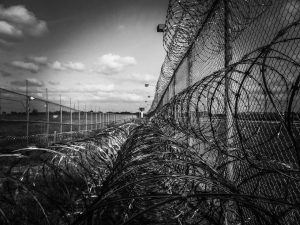
When I used to work in a jail, I used to deal with sex offenders and pedophiles all the time. The severity of their crimes never really bothered me. Everyone has some sort of criminal they don’t like, whether murderers, drug addicts who say it wasn’t their fault with excuses and go in and out of the jail like a revolving door, thiefs, or sex offenders. When I was pregnant with my daughter, i paid close attention to the sex offenders and their crimes. I grew extremely disgusted and wanted nothing to do with them. What was worse was the smug attitude that they had, with most saying they either didn’t do it, or “it was consensual.” As if a child could consent to something, especially after being groomed by these predators. I grew protective of the kids that these predators molested and abused. Before having children, they were just normal people like everyone else in the jail who committed a crime. But after kids, I viewed them as scum. Who would look at a kid and want to do anything like that to them? They are the most innocent and pure creatures on the planet, I couldn’t understand. I mean I knew sex offenders and predators existed, and I just thought “that’s weird.” After having a child of my own, my view on them has completely changed to “what a horrible monster!”
What About The Parents?
Everyone asks about the whereabouts of these girl’s parents. As the docu-series shows, some of these parents are still fighting for their daughters. Some fighting for justice for their daughters and what they endured, while others fighting to get their daughters,who are locked away in Kelly’s house, back. However, the majority of these girls were lying to their parents, telling them they were at a friends house, or their parents were working multiple jobs to support their family.
The reason a lot of these predators get away with it, is not just society turning a blind eye, or victims being afraid to come forward. These predators have no sense of empathy, and to some they continue to abuse because they think they are invincible. They scare and abuse their victims into silence, and for some, like R. Kelly who have gotten away with it for so long, feel like they will never get caught. They continue to abuse and take it a step further over time. When I asked in Ms. Poehler’s experience if the predators are remorseful, she replied “Although the majority of sexual related crimes are resolved via plea agreement in criminal courts, which gives survivors the guarantee of a conviction, abusers are unlikely to show signs of empathetic remorse. They often exhibit co-occurring disorders such as sociopathy, narcissism and other anti-social personality traits. This means they possess little to no empathy.”
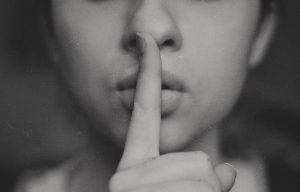
I asked Jennifer Poehler the same question everyone’s been asking about the parents and what they can do to help. She stated “Children are more likely to disclose abuse if they are living with supportive caretakers. Most victims know their abusers, may live with their abusers, and may be experiencing other forms of violence in the home. If children have at least one trusted and safe adult to whom they can disclose, there is an increased likelihood of the abuse being revealed. If children are being threatened with violence by their abuser and/or are being groomed for sexual activity, the signs may not be immediately apparent to other adults in the home. Remember that predators are just that; they wait for opportune moments where they can be alone with their victims. Parents should take notice of warning signs, including changes in mood, appetite and hygiene, inappropriate sexualized behavior, poor school performance, aversion to physical touch, self-injurious behavior, and physical signs of abuse such as injury to genital areas (the genitals tend to heal quickly, so physical findings are not always evident).”
As the founder of #MeToo, Tarana Burke stated, “The way that we as a society talk about and think about sexual violence, a lot of times, it puts the owness on the victim. People are brainwashed into thinking that they have complicity in their own abuse, and so they don’t come forward because of the deep shame, the fear of being ostracized in their community. There are all these different factors that allow people to stay silent.” The reality is that when some children decide to speak up and tell their parents about the abuse, their parents are in denial. The parents feel like they failed their kids, and failed at protecting them, so they choose to not accept it. They do not want to believe they allowed this to happen to their kid, and never saw the signs. No one wants to believe that it could happen to their kid, but it does. What is worse is that these young boys and girls are afraid to come forward. We need to constantly talk to our children about the meaning of consent, sex, and to speak up if they feel uncomfortable or have been violated.
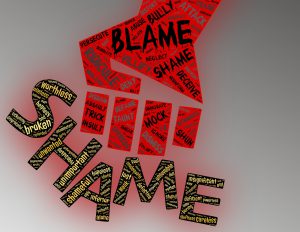
Creating Hostility & Distrust
Dr. Jody Adewale states “people who stand up and say ‘I’ve been victimized, I’ve been sexually abused,’ we as a society tend to beat it with skepticism, because there have been cases where people have lied.” So when the girls who did come forward were shamed and not believed. Why would any other girls want to come forward, only to endure such hate and shame towards them?
What is most hurtful about all of this is that young kids who are being abused by their uncle, family member, or close friend of the family are afraid to come forward. They watch these girls who were abused by R. Kelly be shamed and think “if they ridicule these girls and don’t believe them, who is going to believe me?” They are less likely to come forward when society victim shames the girls who did endure such abuse.
Cofounder of #MuteRKelly Oronike Odeleye stated “You have this powerful person that is beloved in the African American community, and then you have a victim that nobody cares about. The greater society perpetuates stereotypes about black women that internally you start to believe. We will believe it if it’s a convenient excuse not to have to deal with the reality of R. Kelly and how we have been supporting and enabling him for decades.” This not only happens with R. Kelly, but other people of power such as the priests of the Catholic church, and Larry Nassar, the gymnastics national team physician, who were molesting young kids. “Unfortunately, in the case of the Catholic Church or the organizations that employed the gymnastics physician Dr. Larry Nassar, and Penn State’s Jerry Sandusky, there was an institutional directive to ignore the abuse, shield the abuser, and disenfranchise the victims. The power and prestige of maintaining the image of these institutions outweighed their duty to keep the public safe from the predators they protected,” stated Jennifer Poehler.
So Why Now?
As a mother, I became more aware of the things happening and take it all into perspective. I see these predators for what they are- monsters. I began to empathize more with the victims, not because I cared any less before, but because I worry more now that I have a child of my own. I began to fear what could happen to my kids. It affected me more. The same goes for these victims who endured abuse by these predators. These young girls were 14-18 years old that were abused by R. Kelly. They were young impressionable girls who thought this was in some sense normal. It started with R. Kelly taking interest in them, to then slowly controlling them to the point they had to knock on doors before entering, asking to eat and use the bathroom, and even making them have sex with other people. For some, he took their virginity, and they were not experienced sexually. They thought this is what they had to do.
These victims are now adults with children of their own. They grew to be more aware, and are able to speak about what happened. Having children of their own, realizing it was all not okay, and doing what they have to do to protect their kids from ever going through it is their drive. They now have their own reasons for coming forward that are bigger than just their stories, it is about protecting future generations from the same fate. They want to talk about the abuse, explain what to look for so the predators can not do it anymore to anyone else, and for young girls to hear these stories and know they are not alone. Victims speak up because want others to know the signs, to say no, to walk away, and to come forward to get the help they need.
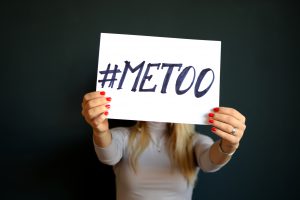
Poehler states “Now more than ever, there is greater societal attention focused on believing sexual violence and abuse survivors. These survivors are finding each other and supporting each other in making sure we hear their stories. There is strength in numbers and we see that in the #MeToo and #TimesUp movements. Society is becoming more tuned into the issues surrounding consent, domestic violence, and sexual violence. More states are adapting mandated reporter requirements, which leads to an increase of reporting child abuse and neglect. We have a very long way to go before these issues fully receive the urgent attention they are due, but progress is measured in how often we believe survivors when they disclose. Sexual violence is vastly underreported and rarely falsely reported. Survivors have much to lose and little to gain when they take their stories public, such as the cases of Anita Hill and Dr. Christine Blasey-Ford.” These two women were the survivors who spoke out against the then-Supreme Court nominee Judge Brett Kavanaugh. Thanks to the #MeToo and #TimesUp movements, it has given women the ability to speak up without fear. The ability to empower women to talk without shame, and more importantly with support.
Hearing how these girls were violated and abused left me feeling powerless and heartbroken. I think that is important for everyone to listen to the victim’s stories. Hear them, empathize with them, and encourage them to talk about it. We shouldn’t turn a blind eye to what these predators are doing, and brush it off. The victims deserve more than that, especially after what they endured. The victims at least deserve our respect, our voice, and our sympathy. It makes me proud to see the #MeToo and #TimesUp movements embrace the victims, and help them not only speak out, but seek justice. I think everyone should do the same for these victims, and most importantly to listen to them and at least try to understand what they went through.
If you or someone you know is being sexually abused, speak up. It is the first process for healing, and for justice. As for parents, it is extremely important to speak to your children about sexual education. Talk to them about their private parts, the meaning of consent, and build a strong relationship with them. This way we can provide them the knowledge necessary to protect and empower them.